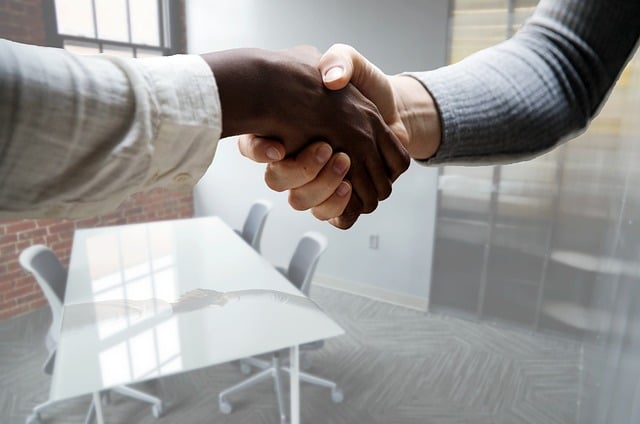This article is the personal narrative of “The Mike Veny Show” co-host and journalist, Leanna Johnson, who deals with post-traumatic stress disorder (PTSD). It may be triggering to anyone who has dealt with trauma, abuse, or assault. She is not a mental health professional, and can only share her own experiences. If you, or anyone you know, deals with mental health concerns, please contact your doctor or a therapist about treatment options.
“Get over here, or I’ll shoot!”.
October 8, 2012. I was a college junior living in downtown Chicago, taking the shortcut home after a long day of work. A man came up behind me and put a pistol to my head, yards from my own back door. It started as a simple robbery, but as he slowly frisked me, his hands lingering everywhere, I knew he wanted more than my cash and phone. Minutes later, with the contents of my bag strewn on the alley floor, I thought maybe, maybe it was all over.
“Turn around and spread your legs.”
Numbly, I did as he asked, still fighting to comprehend the word “rape.” With one hand shoving the gun into my ear, he pulled up my shirt with the other to get into my sweatpants. I’ll never forget the feeling of his fingers as they forced their way down. My elbow reflexively clamped on his fingers, trapping them as I tried to force my brain to work…
Believe it or not, I was very lucky that night. Why?
Because he didn’t know that I was carrying a weapon. A weapon in the form of a hardcover book.
It had hung by my side while my attacker sifted through my stuff, and he hadn’t even noticed. If I hadn’t moved to stop him, neither would I. Pivoting, I launched the book where I thought his head would be and felt the metal pieces of a pistol butt rake my face as I dropped to the ground.
When I opened my eyes, he was gone. I left my stuff there on the alley floor, now spattered with my blood, and stumbled up the stairs to my apartment. The detectives who answered my roommate’s frantic call told me I was lucky to have made it home with just a black eye.
There had been a string of similar crimes, they said. I was the only one who got away.
In one night, I became both a survivor and a crime statistic, joining nearly 2,500 reported victims of violent crime that month.
Chicago has long led the reputation of being one of the deadliest cities in America. In October 2015, it still held first place for violent crime in the US, according to FBI statistics.
In a January 2016 press release, the Chicago Police Department (CPD) celebrated a 37 percent drop in overall crime across all FBI-sanctioned categories (homicide, rape, robbery, burglary, aggravated assault, felony theft, motor vehicle theft and arson). Yet, the Chicago Tribune cited August 2016 as the “most violent month in Chicago in 20 years,” with data provided by the CPD.
I remember going back to class in the months following my attack; I worked the same part-time jobs, worried over homework, and occasionally mourned my recent breakup over a tub of ice cream.
But other than that, much of the next year was (and still is) a blur to me. I didn’t stay long in the city after the assault. The suburbs were what I had always known and I thought I would be safe there. But a year later, I began to notice some of the significant signs of late-onset PTSD.
One incident in particular stands out:
I was walking home from the library one summer evening at sunset. My senses seemed to be permanently on high alert now, so I had to force myself to stay calm as I heard footsteps behind me. I kept my pace and concentrated on my breathing so I wouldn’t hyperventilate.
In through the nose and out through the mouth.
After surreptitiously checking my pulse, I slowed down a bit and let the laughing couple behind me pass by and felt my shoulders loosen and drop. A second later, I saw a dark figure out of the corner of my eye and nearly choked on my breath. My muscles tensed instantly and I couldn’t control it anymore. Wave after wave of air crashed into my lungs and I stood there, dizzy and disoriented, trying to get my brain to understand what my body already knew.
It was just a shadow. My shadow. And I was terrified of it.
There is no real happy ending to a story like this. The effects of trauma don’t just disappear, and many of the changes we experience are permanent. Our memories, experiences, and our ability to interact with the world around us affect our personalities, our relationships, and our instincts.
It has only been four and a half years since I survived a robbery and sexual assault, and even though I defended myself and got away, I still discover new triggers and learn new things about my condition every day.
I don’t watch horror films or many violent crime scenes. I have to monitor every romantic relationship. I still flinch when I hear people walking behind me. I avoid being out alone at night, and I’m still afraid of my own shadow. Even writing this article comes at a cost, and I have to monitor the time spent dwelling on memories and in dark places. Every time I read the first line, my pulse jumps and I must take a deep breath, so I can keep on writing.
The difference between then and now is that I am learning to face my fears.
I have learned, for example, that I can be okay with the term “disabled journalist” without feeling the need to define myself as such. I have learned to use my voice, as a speaker, as a writer, and as a producer, to share my stories and to help others tell theirs. I have learned to become an advocate.
I still struggle with setting boundaries in all areas of life, with taking care of myself, and with seeing myself as a whole, healthy person who is neither “sick” nor “broken”.
Perhaps, after all, that is the hardest part of a recovery.
But the fact that I can even put that on a page for people to read should tell you something. All I can say is, thank God for therapy!
If there is one thing I have learned since that night in October 2012, and in my work with Mike Veny on his podcast, it is that my struggles and my successes are not mutually exclusive: I won’t succeed “despite” my struggles, but because they’ve taught me to overcome and to transform my stigma into something truly amazing.



